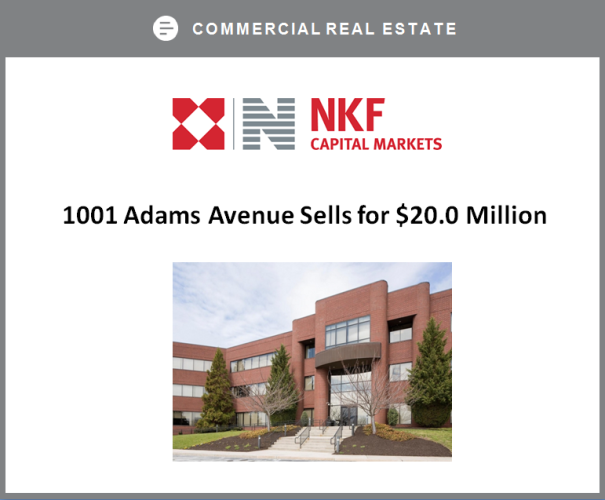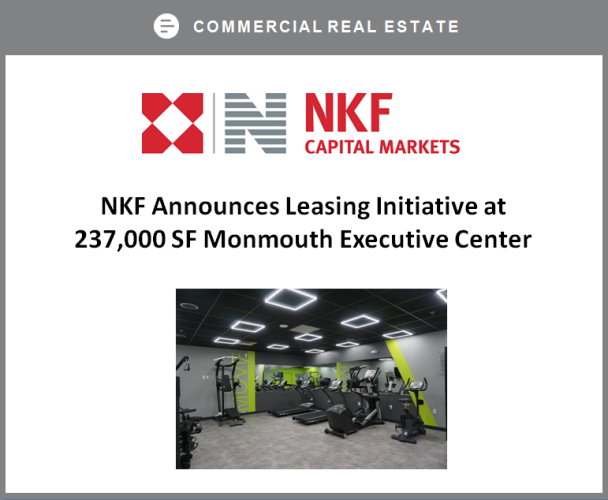CAMDEN, N.J.--(BUSINESS WIRE)--Campbell Soup Company (NYSE:CPB) today reported results for its fourth-quarter and full-year fiscal 2020. Fiscal 2020 was a 53-week year, with the extra week falling in the fourth quarter. The benefit of the additional week in both the fourth-quarter and full-year results is estimated to be $0.04 per share.
CEO Comments
Mark Clouse, Campbell’s President and CEO, stated, “Our strong fourth-quarter and full-year fiscal 2020 performance was enabled by the extraordinary work of our teams who remained agile and resilient in a challenging operating environment. We continued to invest in our businesses during the quarter as we experienced unprecedented demand for our products and welcomed millions of new households to the Campbell portfolio. This quarter concluded a year that furthered our strategic plan and solidified a significantly strengthened foundation that we will build upon going forward as we begin fiscal 2021."
Items Impacting Comparability for Continuing Operations
The table below presents a summary of items impacting comparability in each period. A detailed reconciliation of the reported (GAAP) financial information to the adjusted information is included at the end of this news release.
Fourth-Quarter Results from Continuing Operations
Net sales increased 18% to $2.11 billion. Organic net sales, which exclude the impact from the additional week in the quarter and the impact from the sale of the European chips business, increased 12% from the prior year driven by favorable volume in both Meals & Beverages and Snacks reflecting a continued increase in demand as at-home food consumption remained elevated.
Gross margin increased from 34.0% to 35.4%. Excluding items impacting comparability, adjusted gross margin increased 190 basis points to 35.6% driven by the benefits of supply chain productivity improvements and cost savings initiatives, as well as mark-to-market gains on outstanding commodity hedges, improved operating leverage and favorable product mix, offset partly by higher supply chain costs related to COVID-19 and cost inflation.
Marketing and selling expenses increased 36% to $265 million. Excluding items impacting comparability in the prior year, adjusted marketing and selling expenses increased 37% driven primarily by increased investments in advertising and consumer promotion expenses across both segments. Administrative expenses increased 12% to $186 million. Excluding items impacting comparability, adjusted administrative expenses increased by $30 million, or 22%, with approximately one half of the increase driven by the estimated impact of the additional week in the quarter on general administrative costs. The balance of the increase reflects increases in charitable contributions, higher incentive compensation accruals, and higher benefit costs, offset partly by the benefits from cost savings initiatives.
Other expenses were $106 million compared to $128 million in the prior year. Excluding items impacting comparability, adjusted other income was $15 million compared to $10 million in the prior year.
As reported EBIT increased 101% to $167 million. Excluding items impacting comparability, adjusted EBIT increased 22% to $307 million as higher sales volumes, including the benefit of the additional week in the quarter, and improved gross margin performance, were offset partly by increased marketing investment and higher adjusted administrative expenses.
Net interest expense was $60 million compared to $84 million in the prior year reflecting lower levels of debt. Taxes increased to $21 million, compared to $4 million in the prior year. Excluding items impacting comparability, the adjusted tax rate decreased 330 basis points to 22.3% from 25.6%.
The company reported EPS of $0.28 per share. Excluding items impacting comparability, adjusted EPS increased 50% to $0.63 per share, reflecting an increase in adjusted EBIT, as well as lower net interest expense and a lower adjusted effective tax rate.
Full-Year Results from Continuing Operations
Net sales increased 7% to $8.69 billion. Organic net sales, which exclude the additional week and the impact from the sale of the European chips business, also increased 7% from the prior year driven by gains in both Meals & Beverages and Snacks.
As reported EBIT increased 13% to $1.11 billion. Excluding items impacting comparability, adjusted EBIT increased 14% to $1.45 billion reflecting higher sales volume, including the benefit of the additional week, and improved gross margin performance, offset partly by increased marketing investment.
Net interest expense was $341 million compared to $354 million in the prior year. Excluding items impacting comparability in the current year, adjusted net interest expense decreased 25% from the prior year to $266 million reflecting lower levels of debt. The tax rate was 22.7% as compared to 24.2% in the prior year. Excluding items impacting comparability, the adjusted tax rate increased 40 basis points to 24.1% from 23.7%.
The company reported EPS of $1.95 per share. Excluding items impacting comparability, adjusted EPS increased 28% to $2.95 per share reflecting the increase in adjusted EBIT and lower adjusted net interest expense.
Cash flows from operations of $1.40 billion were comparable to the prior year. Total debt, including amounts related to discontinued operations, was reduced by $2.52 billion in fiscal 2020 primarily due to successful deleveraging following the completion of the company’s previously announced divestiture plan. Capital investments were $299 million compared to $384 million in the prior year reflecting delays in certain projects impacted by the current operating environment. In line with the company’s commitment to returning value to shareholders, the company paid $426 million of cash dividends in fiscal 2020 reflecting the quarterly dividend rate of $0.35 per share.
Cost Savings Program from Continuing Operations
In the fourth quarter of fiscal 2020, Campbell achieved $45 million in savings under its multi-year cost savings program, inclusive of Snyder’s-Lance synergies, bringing total program-to-date savings to $725 million. Total fiscal 2020 savings were $165 million. As previously announced, Campbell is targeting cumulative annualized savings of $850 million by the end of fiscal 2022.
Campbell Provides First-Quarter Fiscal 2021 Guidance
The company's performance in fiscal 2020 was significantly impacted by the increase in demand for its products amidst the COVID-19 pandemic. The continuing effect of the pandemic on the operating environment is difficult to predict with enough certainty to provide a full-year outlook at this time. The company expects that demand for its products will remain elevated in the near term and accordingly, is providing guidance limited to the first quarter of fiscal 2021.
Management has included its perspective on the full-year fiscal 2021 environment in the prepared remarks. See "Presentation Materials and Q&A Webcast" below.
Segment Operating Review
Meals & Beverages
Net sales in the quarter increased 28%. Excluding the additional week in the quarter and the impact from currency, net sales increased 19% driven primarily by gains across the U.S. retail business, including gains in soups, V8 beverages, Prego pasta sauces, and Campbell’s pasta, as well as gains in Canada, partially offset by declines in foodservice. Volume was favorable in the retail business with increased demand of food purchases for at-home consumption, offset partly by the negative impact on the foodservice business as a result of shifts in consumer behavior and continued COVID-19 related restrictions. Including an 11-point benefit from the additional week, sales of U.S. soup increased 52% due to gains in condensed soups, ready-to-serve soups and broth.
Segment operating earnings increased 24%. The increase was primarily due to sales volume gains, including the benefit of the additional week, and improved gross margin performance, offset partly by increased marketing support and higher administrative expenses. Gross margin performance was impacted by the benefit of supply chain productivity improvements and cost savings initiatives, as well as improved operating leverage and favorable product mix, partially offset by higher supply chain costs related to COVID-19 and cost inflation.
Snacks
Net sales in the quarter increased 11%. Excluding the additional week in the quarter, the impact from the sale of the European chips business and the impact from currency, net sales increased 7% driven primarily by volume gains reflecting increased demand of food purchases for at-home consumption, as well as base business performance. These sales results reflect gains in fresh bakery products, Pepperidge Farm cookies, Late July snacks, Goldfish crackers, and Snyder’s of Hanover pretzels, as well as Kettle Brand and Cape Cod potato chips.
Segment operating earnings were comparable to the prior year as sales volume gains, including the benefit of the additional week, were offset by increased marketing support and lower gross margin performance. Gross margin performance declined in the quarter as the benefits of cost savings initiatives and supply chain productivity improvements, as well as favorable product mix and improved operating leverage, were more than offset by higher supply chain costs related to COVID-19 and cost inflation.
Corporate
Corporate expenses were $154 million in the fourth quarter of fiscal 2020 compared to $192 million in the prior year. Corporate expenses in the fourth quarter of fiscal 2020 included pension and postretirement mark-to-market losses of $121 million and costs related to cost savings initiatives of $20 million. Corporate expenses in the fourth quarter of fiscal 2019 included pension and postretirement mark-to-market losses of $122 million, costs related to cost savings initiatives of $22 million, and a non-cash impairment charge of $16 million related to the European chips business. The remaining decrease in expenses primarily reflects gains on outstanding commodity hedges.
Reportable Segments
Campbell Soup Company earnings results are reported as follows:
Meals & Beverages includes the retail and foodservice businesses in the U.S. and Canada. The segment includes the following products: Campbell’s condensed and ready-to-serve soups; Swanson broth and stocks; Pacific Foods broth, soups and non-dairy beverages; Prego pasta sauces; Pace Mexican sauces; Campbell’s gravies, pasta, beans and dinner sauces; Swanson canned poultry; Plum baby food and snacks; V8 juices and beverages; and Campbell’s tomato juice.
Snacks includes Pepperidge Farm cookies, crackers, fresh bakery and frozen products in U.S. retail, including Milano cookies and Goldfish crackers, as well as Snyder’s of Hanover pretzels, Lance sandwich crackers, Cape Cod and Kettle Brand potato chips, Late July snacks, Snack Factory Pretzel Crisps, Pop Secret popcorn, Emerald nuts, and other snacking products in the U.S. and Canada. Beginning in fiscal 2020, the segment also includes the retail business in Latin America. Prior to fiscal 2020, the business in Latin America was managed as part of the Meals & Beverages segment. Prior-period segment results have been adjusted retrospectively to reflect this change. On Oct. 11, 2019, Campbell completed the sale of the European chips business. The results for the European chips business up through the time of sale are included as part of the Snacks segment.
About Campbell Soup Company
Campbell (NYSE:CPB) is driven and inspired by our purpose, "Real food that matters for life's moments." For generations, people have trusted Campbell to provide authentic, flavorful and affordable snacks, soups and simple meals, and beverages. Founded in 1869, Campbell has a heritage of giving back and acting as a good steward of the planet's natural resources. The company is a member of the Standard and Poor's 500 and the FTSE4Good Index. For more information, visit www.campbellsoupcompany.com or follow company news on Twitter via @CampbellSoupCo.






